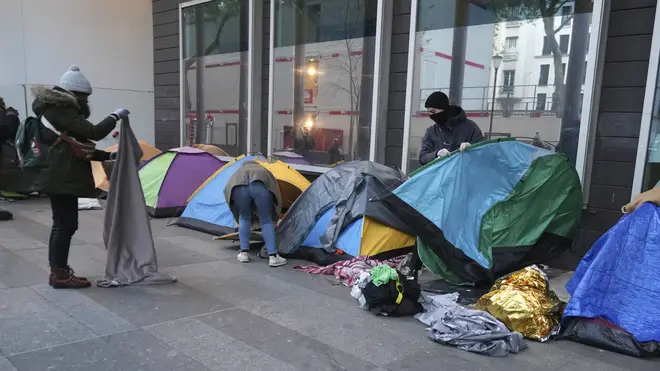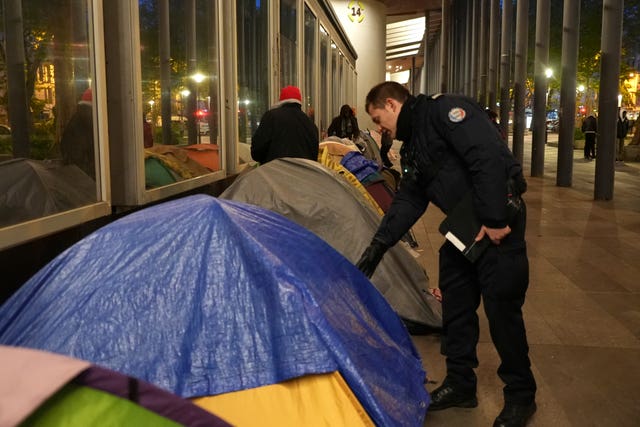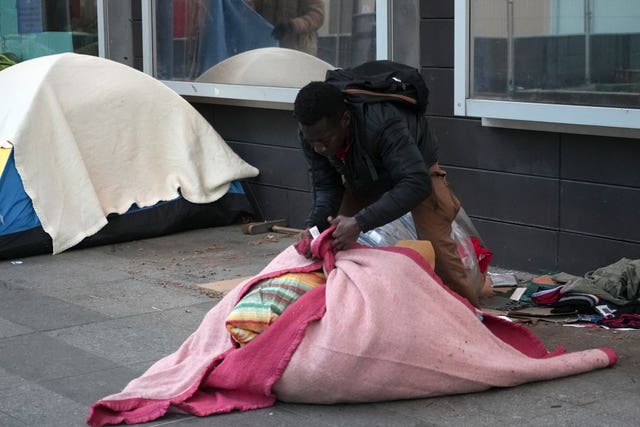
Richard Spurr 1am - 4am
23 April 2024, 13:34

The operation comes days after police carried out a large-scale eviction at France’s biggest squatter camp in a suburb south of the capital.
French police have evicted migrants from a makeshift camp in Paris a few steps from the River Seine in the latest operation in what aid groups call a campaign of “social cleansing” ahead of the Summer Olympics.
Around 30 teenage boys and young men from West Africa were woken before dawn by officers and urged to pack their tents and belongings. Most of them were underage and in the process of seeking residency papers.
“I was already scared but I am even more scared because I don’t know where to go,” 16-year-old Boubacar Traore – who said he had fled conflict in Burkina Faso and arrived in France two months ago – said.

The operation came days after police carried out a large-scale eviction at France’s biggest squatter camp in a suburb south of Paris.
Such evictions and evacuations of migrant tent camps happen every spring after the end of a winter “truce” during which authorities put such actions on hold.
But aid groups working with migrants and other vulnerable people in the Paris region said these efforts were intensifying ahead of the Olympics.
They noted that people were being sent far away from the capital instead of being offered shelter in the Paris region, where many asylum seekers have upcoming court dates.

“The authorities want to have a clean place for the Olympics Games. They don’t want the tourists to see Paris as a city full of migrants and asylum seekers,” Elias Hufnagel, a volunteer with a group serving refugees and immigrants, said at the Paris tent camp on Tuesday.
Paris police said the operation was carried out for security reasons, notably because the tent camp was near schools.
Two large buses heading to Besancon, 240 miles (400km) southeast of Paris, were stood in a nearby street.
Authorities proposed to relocate the young men there and offered them housing for three weeks.
Most did not want to take up the offer, saying they feared being further isolated and with no plan after the three weeks ran out.